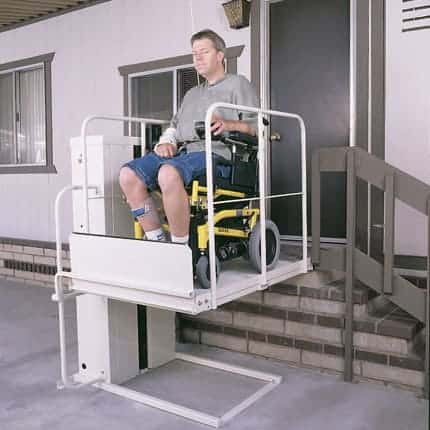A critical illness is a serious condition whereas death could occur. During recovery from a critical illness, mobility aids help prevent further injury or complication, which is crucial during this phase of healing. Mobility aids may also make it easier and safer for patients in their rehabilitation, which may involve physical activities, walking, standing, etc.
A critical illness is defined as a condition where death could be the outcome, and some examples may include organ failure, heart attacks, coma, and cancer. Even after coming home from the hospital, it can be a long road to recovery that requires ongoing medical interventions and treatment. Some post ICU care interventions may involve physical activity and rehab treatment, to restore physical strength and mobility, but a fall or injury can derail progress. This is why mobility aids are key to help after a critical illness as both a safety measure and a rehabilitative tool.
Here are a few mobility aids to help following a critical illness:
Ramps
Ramps are easy to overlook but can be essential in getting in and out of a dwelling, through doors, or around the home safely. These offer an alternative to steps or stairs, which can be important to those recuperating from a critical illness affecting mobility and stamina. Did you know that some ramps are portable? That is, they are not constructed to fit the home but rather offer a foldable design that you can take with you wherever you go, ensuring convenience and accessibility.
Walkers
When it comes to walking and navigating the home, one aid that can be invaluable is a walker. There are numerous types and designs, with four to zero wheels, and certain styles may suit different users. Walkers are typically lightweight and bring a source of stability to the user when walking, standing, or sitting. There are knee walkers, rolling walkers, and stationary walkers- all intended for mobility assistance. Another perk is that walkers are often covered by insurance plans and are relatively inexpensive to buy out-of-pocket.
Canes
If a walker won’t work in your living situation, or if you are stepping down from reliance on a walker, a cane can help. A cane can be adjusted with grips that help the user hang on firmly, or a simple walking stick may be all that is necessary for a bit of support when sitting or standing. Canes are often used by those with visual impairments to help navigate their surroundings, too.
Shower Bench
A nasty fall on a slippery bathroom floor can derail progress and set patients back in their recovery from a critical illness or condition. Lower your risk of a fall in this area of the home with a shower bench or seat. These are widely found and inexpensive to purchase, and they offer a source of support during bathing, showering, and washing. Some fit over the tub wall, while others are freestanding for a shower stall environment. They keep the user secure and comfortable during this activity of daily life (ADL) while they rehabilitate.
Super Pole
A super pole installed securely near the bed can help patients recovering from debilitating conditions get in and out of bed safely. Depending on where they are placed, a super pole can also offer stability for the patient as they navigate and move about the home. Want to learn more? Talk with a mobility retail professional about a Super Pole today.
Lifts
Talk with your healthcare providers about installing a lift in the home. These provide the dual benefit of assisting the patient with accessibility while also protecting the caregivers from injuries as they help. Stairlifts provide easier access to upper levels or entries, while ceiling lifts help carers transport and transfer patients more securely and with less risk involved. Some patients may not be able to return home without aids like lifts to make it a viable and safe living option.
National Critical Illness Awareness Month
Observe National Critical Illness Awareness Month in October to honor both those living with the impacts of a critical illness as well as their caregivers. There is a lot to navigate when leaving the hospital after a serious illness, injury, or condition, and there are resources that can help. The needs of the patient can evolve and change, but in the process, do not overlook the needs of those caring for them. Not all carers are paid professionals; many may be family members or friends who are unfamiliar or unequipped for their new circumstances. This national observance provides the opportunity to learn, network, and access resources that may help along the way.
Mobility aids like these are an important tool for those recovering from a critical illness, for safety, comfort, and health prevention. Visit or call Pacific Mobility to learn more about adaptive aids that can assist you in your rehabilitation and recovery.
President, Husband, Father, Grandfather Graduate of UC Davis- Bio Sci Major- Go Aggies! Jeff has extensive experience in all of Pacific Mobility’s products and services, and specializes in accessibility products as well as stairlifts, ceiling lifts and custom wheel chairs. His hobbies include spending time with family, gardening, mountain biking, exercising and off road motorcycle riding.
24 years as Owner/President of Pacific Mobility Center – selling, installing, and servicing stairlifts, porch lifts, ceiling lifts, pool lifts, handicap ramping, specialty wheelchairs, scooters, power wheel chairs, and other power mobility devices
Certified Environmental Access Consultant since 2008
Licensed General Contractor since 1998
Certified Aging in Place Specialist since 2016
Board Member for Home Access Professionals
Member of Association of Members of the Accessibility Equipment Industry (AEMA)




